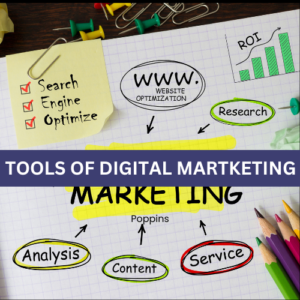Successful brands that effectively utilize social media platforms have the advantage of consistently engaging in online discussions. They not only have direct access to their target audience but also possess the opportunity to establish themselves as industry authorities by providing valuable and informative content. However, developing a proficient social media strategy is a complex task. It is insufficient for brands to adopt a “pay and spray” approach, where they purchase numerous advertisements and hope they reach the intended audience. Creating a lucrative social media strategy requires time and thorough research. Marketers must gather sufficient data to ensure they engage with the appropriate audience and allocate resources to the channels that yield the highest return on investment (ROI). Leveraging data is crucial for developing an effective social media marketing strategy. Here are seven ways you can use data to enhance your approach:

- Audience Analysis: Utilize data to gain insights into your target audience. Analyze the demographics, interests, behaviors, and preferences of your existing followers or customers. This information will help you create content and messaging that resonates with your audience and tailor your social media campaigns accordingly.
- Competitive Analysis: Analyze data on your competitors’ social media performance. Examine their follower growth, engagement rates, content strategy, and customer feedback. This analysis will help you identify gaps and opportunities in the market, refine your own strategy, and differentiate your brand.
- Content Performance: Monitor data on your social media content’s performance. Identify the types of posts that receive the most engagement, reach, and conversions. Analyze metrics like likes, comments, shares, click-through rates, and conversion rates. This data will guide your content creation, allowing you to optimize your efforts for maximum impact.
- Social Listening: Leverage data from social listening tools to monitor conversations and mentions of your brand, competitors, and industry. This data provides valuable insights into customer sentiment, emerging trends, and customer needs. It enables you to adapt your strategy, engage with your audience, and identify opportunities for content creation or product development.
- Influencer Research: Utilize data to identify influencers who align with your brand and target audience. Analyze their follower demographics, engagement rates, content quality, and audience sentiment. This data-driven approach ensures that you partner with influencers who can effectively amplify your brand message to the right audience.
- A/B Testing: Conduct A/B tests on social media to gather data-driven insights. Test different variations of ad copy, visuals, CTAs, and targeting options. Analyze the data to identify which variations perform better and refine your strategy based on the results.
- Conversion Tracking: Implement conversion tracking tools to measure the impact of your social media efforts on your website’s conversions. Set up tracking pixels, UTMs, or other tracking methods to attribute conversions back to specific social media campaigns. This data will help you assess the ROI of your social media marketing efforts and optimize your campaigns for better results.




